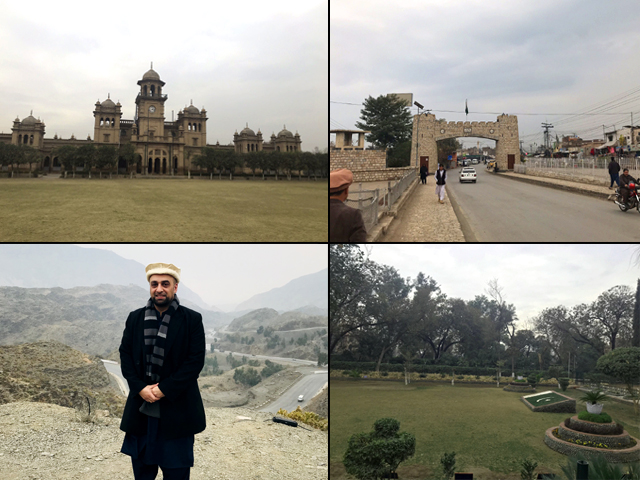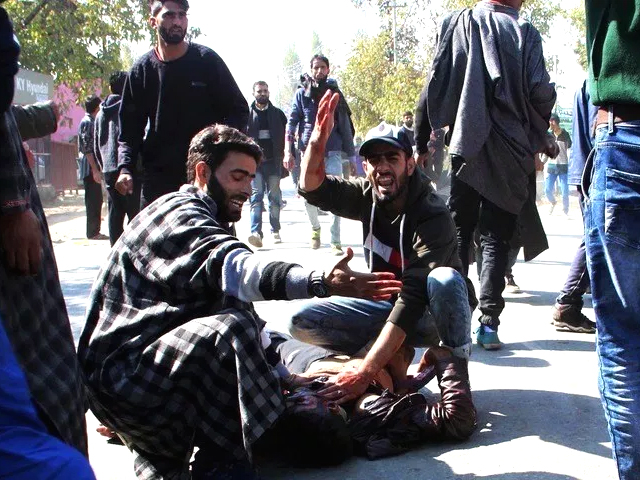
What does the IS have in common with the US?
The IS is dishing out the same international mantra“with us or against us”, used by the US earlier, to fight the West.
After 9/11, the US administration decided to go on a mass “witch hunt” to locate and exterminate culprits whom they believed were behind the attacks on the World Trade Centre.
The ultimate culpability and responsibility for the attacks was placed on Osama bin Laden, the then head of al Qaeda. Although the prime suspects for the 9/11 attacks were led to be of Arab descent, the location where it was believed that Bin Laden and his associates were residing was Afghanistan.
Afghanistan, at the time, had gone through a series of internal struggles during their war with the USSR, in which Afghan Mujahideen had fought against the Soviets in the decade preceding 9/11. The fight against the Soviets was spearheaded, amongst many others, by Bin Laden. Once the war against the Soviet Union subsided, the narrative for Bin Laden changed as it was promulgated that Bin Laden and his al Qaeda organisation were not pleased with what was unfolding in many Muslim lands. Sporadic wars were initiated against these countries, which led to the loss of many innocent lives.
President George W Bush had initially used the word “crusade” as he began to romp off support from the international community to spring an attack on Afghanistan and exterminate “public enemy number one”, Osama bin Laden. This phrase was later retracted and we began to hear slogans such as “Operation Infinite Justice” and “Operation Infinite Freedom” as pretexts and justifications for the attack on Afghanistan.
During this phase, when the US administration was mustering up military and political support for the attack on Afghanistan, the political mantra that President Bush and other senior military heads adopted was, “You are either with us or against us” or “Either you are with us, or you are with the terrorists” in the fight against terrorism – the terrorism that was being orchestrated by al Qaeda, to be more precise.
This either-or supposition left no middle ground as many nations, either voluntarily or involuntarily, based on military-diplomatic pressures and wider repercussions, ended up joining the “coalition of the willing” to attack Afghanistan and root out the terrorist networks that we were led to believe were operating there.
Fast-forward to 2015
Having witnessed multiple theatres of warfare over the last decade in places such as Iraq, Syria, and Libya – a few amongst a long list – the “new” terrorist network under the name of Islamic State (IS), headed by Abu Bakr al Baghdadi, is dishing out the same international mantra of “with us or against us” to fight the West.
IS is working to establish a self-declared Islamic state, featuring many existing nation states. These states would submerge into one universal nation, headed by their caliph, al Baghdadi.
The consequences for those who do not succumb to the wishes of IS are mass indiscriminate killings. This threat is not only orchestrated in lands which they have a stranglehold in but is now spreading into countries in the West as well, whereby ad-hoc indiscriminate acts of terror are being orchestrated under the guise of IS-inspired doctrines, in places like Sydney, Australia.
IS now has its eyes set on entering the Kingdom of Saudi Arabia, which houses two of the holiest sites in the Muslim World. The kingdom is now facing pressure from IS in the northern and southern terrain, which are currently witnessing the political upheaval. This political upheaval, in Yemen and Syria, could likely spill-over into the kingdom as well.
With the death of King Abdullah, the new king, Salman, faces some very stiff challenges at domestic and international levels – namely religious, economic and political fronts, as to what strategic path he should take in these respective spheres.
The rebuttal to the “with us or against us” narrative incorporates the following key premise. Namely, the narrative that was used by the US and its coalition allies, who had democratically elected and/or selected leaders to endorse their support for interventions in Afghanistan and Iraq, was that these were leaders operating in the prism of being state actors and acting on behalf of the state based on a legitimate constitutional or wider authority.
No doubt, there were voices of dissent in many of the countries who provided support to the US and their subsequent actions in Afghanistan and Iraq, but these were stifled or deemed too insignificant to change the international political consensus that had been reached at the time.
IS and their affiliates are operating on a non-state actor basis that lacks any legitimacy apart from the individuals who have pledged their temporal and political allegiance to Abu Bakr al Baghdadi and the quest to create a self-declared Islamic state.
An authoritative rebuttal to IS has been given by multiple senior Muslim scholars of the classical Islamic tradition, in an open letter to Dr Ibrahim Awwad al Badri alias Abu Bakr Al-Baghdadi – and to his fighters and followers – where it is stated categorically that it is forbidden in Islam to kill the innocent, to kill emissaries, ambassadors, diplomats and hence journalist and aid workers. It is forbidden to force people to convert and ultimately “it is forbidden in Islam to declare a caliphate without consensus from all Muslims” – consensus, here, pertains to senior Muslim authorities and Muslim nations across the world.
The “with us or against us” discourse in recent history has demonstrated that this narrative does not provide a solution to our contemporary global religious and political crisis.
The solution to extremism has two phases:
1) Education against extremism
This starts with ensuring that our schools, colleges, universities and religious seminaries are given the tools, resources, access to scholars and academics that can disseminate the true pristine teachings of Islam to students from a young age so that they do not get lured into the trap and poisonous narrative that groups like IS and their affiliates propagate. The education against extremism has to also extend to the various online social media portals ensuring a strong defence mechanism and rebuttal to violent extremism is available which is accessible to all.
2) Action against extremism
This incorporates a multi-faceted approach where severe sanctions and penal penalties are given to individuals and organisations that cross the threshold of extremism by inciting and promoting violent extremism which has a strong probability of leading to indiscriminate acts of terrorism. Strong legal frameworks and regulatory filters need to be put in place at a national and international level to ensure that the protagonist of these heinous acts are brought to justice which will then act as a strong symbolic deterrence against those that wish to traverse this dark path.
This two pronged approach provides the theoretical and practical tools to eradicate the scourge of violent extremism and help individuals realise that the solutions to our core problems do not reside in the “with us or against us” narrative, nor the doctrine of violence, but that it resides in all communities working together by being united in the quest for peace and united against extremism.



COMMENTS (4)
Comments are moderated and generally will be posted if they are on-topic and not abusive.
For more information, please see our Comments FAQ